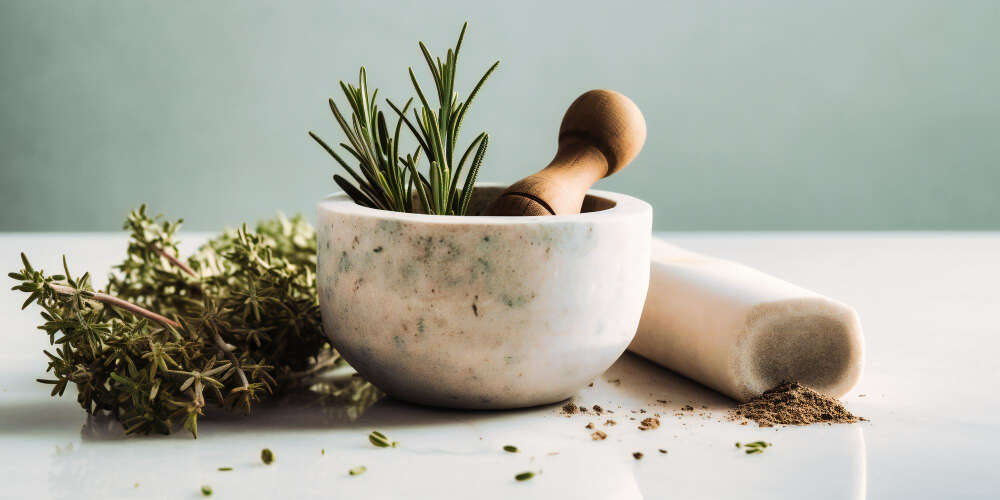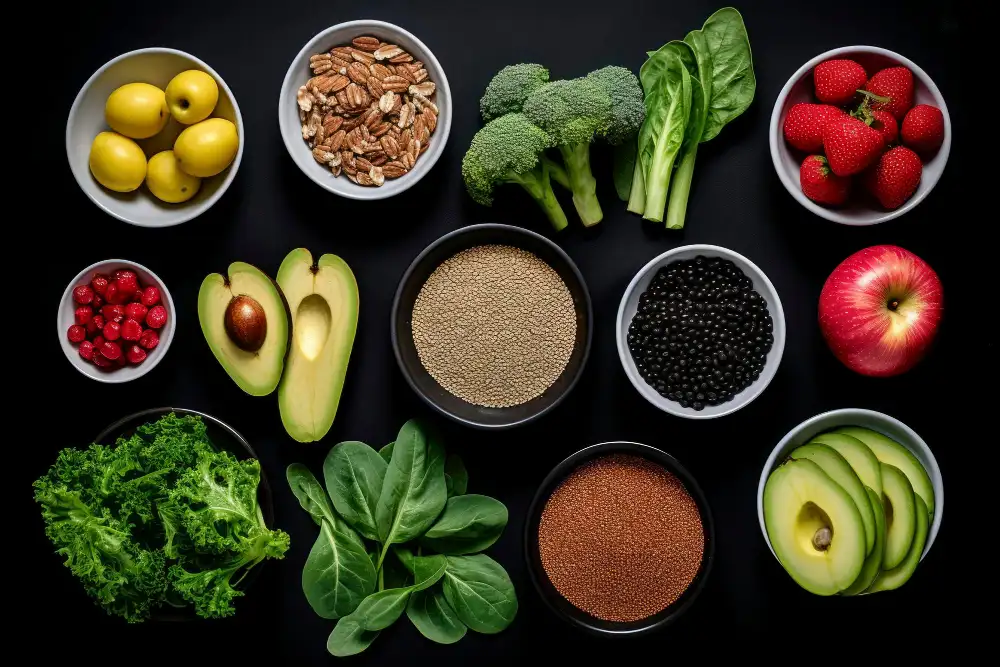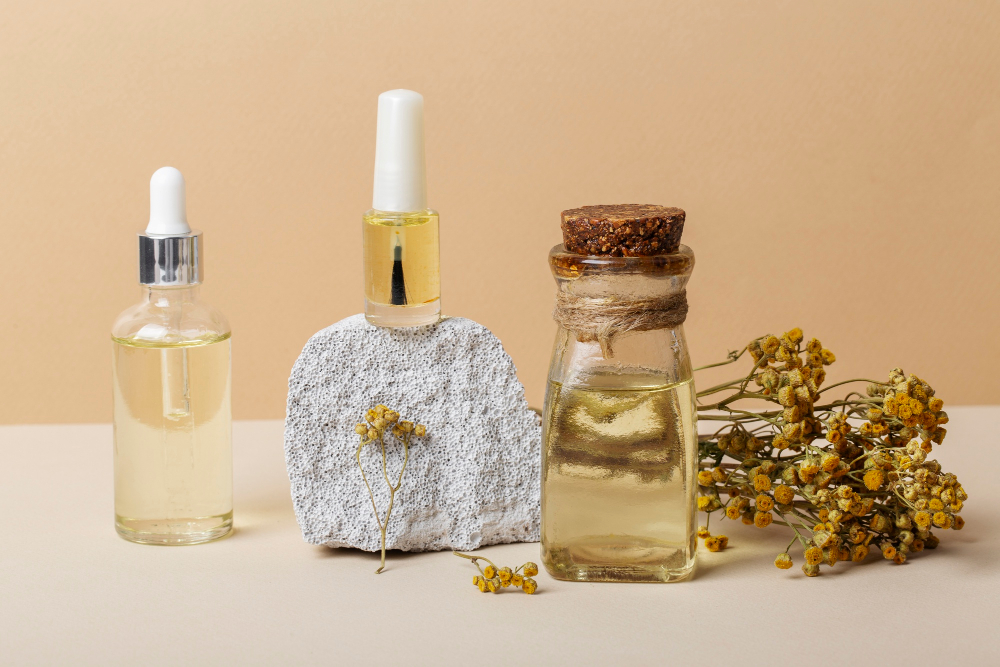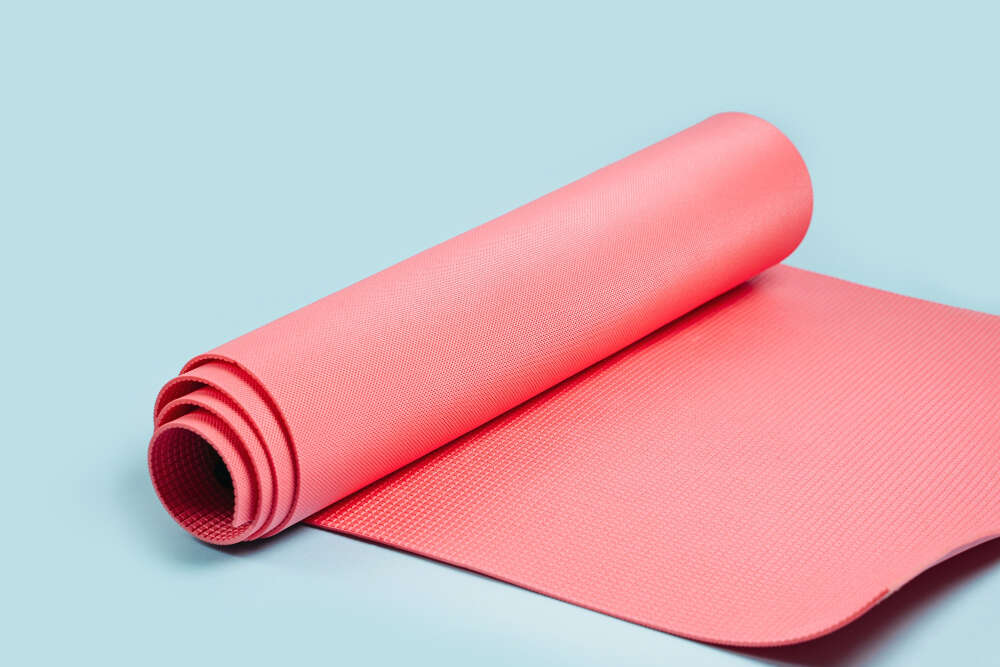Headaches, a common ailment affecting individuals globally, span from mild discomfort to debilitating pain, interrupting daily life and reducing quality of life. In our quest for relief, the allure of alternative medicine and holistic health shines as a beacon of hope, offering natural remedies free from the side effects often associated with pharmaceutical treatments. This article delves into the world of home remedies for headache relief, providing insights into effective strategies that harness the power of nature and the body’s own healing capabilities. Whether you’re a long-time sufferer of migraines or occasionally troubled by tension headaches, the holistic approaches outlined here promise a pathway to relief that aligns with a natural, health-conscious lifestyle.
How to Get Rid of a Headache in 2 Minutes Naturally
In the fast-paced rhythm of modern life, the need for quick, effective headache relief has never been more pressing. Techniques such as focused breathing, gentle yoga, and the application of essential oils like peppermint and lavender offer swift solace. Focused breathing calms the nervous system, reducing stress—a common headache trigger—while gentle yoga poses alleviate tension in the neck and shoulders, often a source of headache pain. Essential oils, applied topically or inhaled, provide immediate relief by relaxing muscles and improving blood flow. These methods not only offer rapid relief but also serve as preventative measures, promoting overall well-being and stress management.
Discover rapid relief solutions to help get rid of headaches in our article, Rapid Relief: Swift Solutions to Banish Headaches.
5 Tips for Instant Migraine Relief
Migraines, characterized by intense, pulsating pain often accompanied by sensitivity to light and sound, demand strategies that target the unique mechanisms behind this severe headache type. Consider these five tips for instant relief:
- Dark and Quiet Environment: Seek refuge in a dark, quiet room. Sensory reduction can significantly alleviate migraine symptoms.
- Cold Compress: Apply a cold compress to your forehead or the back of your neck. The cooling effect can constrict blood vessels, reducing headache intensity.
- Hydration: Dehydration is a known migraine trigger. Drinking water or electrolyte-rich beverages can offer immediate relief.
- Caffeine: A small amount of caffeine may alleviate migraine pain for some people by enhancing the pain-relieving effects of common pain medications.
- Magnesium Supplements: Magnesium deficiency has been linked to migraines. Taking magnesium supplements can provide rapid relief for some individuals.
Incorporating these strategies not only addresses the symptoms of migraines but also empowers individuals to take proactive steps towards managing their condition with natural, accessible remedies.
Pressure Points to Alleviate Headaches
Headache relief pressure points are based on the principles of acupressure, an ancient Chinese medicine technique. By applying gentle pressure to specific points on the body, it’s possible to stimulate the body’s natural self-healing processes and relieve headache symptoms. Key pressure points for headache relief include:
- LI4 (Hegu): Located between the thumb and index finger, applying pressure here can relieve pain and tension in the head and neck.
- GB20 (Fengchi): Found at the base of the skull, where the neck muscles attach to the skull, massaging this area can reduce headache intensity and relieve tension.
- LV3 (Taichong): Located on the foot, between the big toe and the second toe, stimulating this point can alleviate headache pain and promote liver health, which in traditional Chinese medicine is often linked to headaches.
By integrating these pressure points into headache management strategies, individuals can access immediate, drug-free relief while also exploring the broader benefits of acupressure for overall health and well-being.
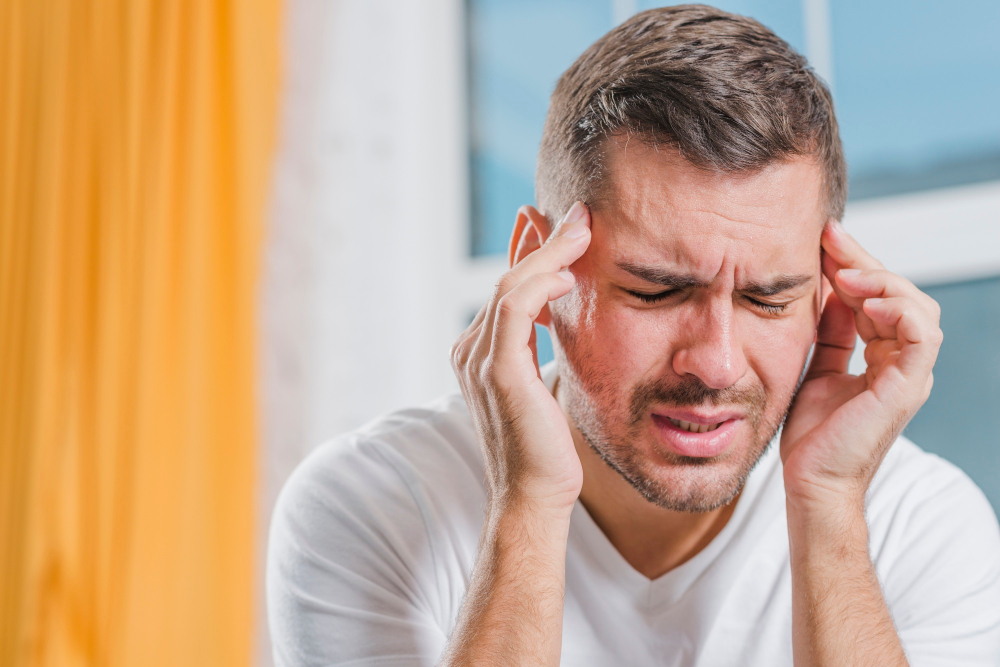
How to Get Rid of a Headache Without Medicine
In the realm of holistic health, finding ways to alleviate headaches without resorting to medication is a cornerstone principle. Here are several effective strategies:
- Hydration: Dehydration can trigger headaches. Maintaining optimal hydration by drinking water throughout the day is a simple yet effective way to prevent or reduce headache severity.
- Dietary Adjustments: Certain foods are known to trigger headaches in sensitive individuals. Keeping a food diary can help identify and eliminate these triggers. Incorporating magnesium-rich foods, such as almonds, spinach, and bananas, can also prevent headache occurrence.
- Regular Physical Activity: Exercise releases endorphins, the body’s natural painkillers. A routine of moderate, regular physical activity can reduce the frequency and severity of headaches over time.
- Adequate Sleep: Poor sleep patterns are a significant headache trigger. Establishing a consistent sleep schedule and ensuring a restful environment can markedly reduce headache incidence.
- Stress Management: Stress is a well-known headache trigger. Techniques such as meditation, yoga, and deep-breathing exercises can effectively reduce stress levels and the frequency of stress-induced headaches.
By integrating these non-medical remedies into daily routines, individuals can significantly reduce their reliance on medications for headache relief, embracing a more natural approach to health and wellness.
Innovative Headache Relief Tricks
The journey toward holistic health includes exploring innovative strategies for headache relief. Beyond traditional remedies, several lesser-known tricks can offer unexpected relief:
- Aromatherapy: Essential oils, such as peppermint and eucalyptus, have been shown to reduce headache symptoms. Inhaling these oils or applying them to key points on the body can provide soothing relief.
- Biofeedback Therapy: This technique involves learning to control physiological processes such as muscle tension and blood pressure, which can contribute to headaches. Biofeedback therapy offers a powerful tool for individuals to manage their headache symptoms actively.
- Herbal Teas: Certain herbal teas, like ginger and chamomile, have properties that can alleviate headache pain. Ginger tea, for example, can reduce inflammation and nausea associated with migraines.
- Binaural Beats: Listening to binaural beats, a form of soundwave therapy, has been suggested to reduce headache frequency and intensity. This method involves listening to sounds of slightly different frequencies in each ear, promoting relaxation and pain relief.
- Acupuncture: An ancient Chinese medicine technique, acupuncture involves inserting thin needles into specific body points. It’s widely recognized for its effectiveness in reducing headache frequency and severity, offering a non-invasive option for those seeking alternative treatments.
These innovative approaches provide a range of options for individuals looking to manage their headache symptoms through natural and holistic means. Experimentation and personalization of these techniques can help find the most effective strategies for each individual.
Benefits & Limitations of Home Remedies for Headache Relief
Benefits
- Natural and Safe: Home remedies for headaches often utilize natural ingredients or techniques, minimizing the risk of side effects associated with over-the-counter or prescription medications.
- Cost-Effective: Many home remedies involve items already available in your home or are generally less expensive than medical treatments.
- Holistic Approach: These remedies can be part of a broader holistic health strategy, addressing not just symptoms but also underlying causes of headaches, such as stress or dehydration.
- Empowerment: Learning and applying home remedies empowers individuals to manage their health proactively, providing a sense of control over their well-being.
- Complementary: Home remedies can complement conventional medical treatments, offering additional relief and support in headache management.
Limitations
- Variable Effectiveness: The effectiveness of home remedies can vary widely among individuals. What works for one person may not work for another.
- Lack of Scientific Research: While some remedies have been supported by research, others lack scientific evidence to back their efficacy.
- Potential for Misuse: Without proper knowledge or if used incorrectly, some remedies might not be effective or could cause adverse effects.
- Not a Substitute for Professional Medical Advice: In cases of chronic or severe headaches, relying solely on home remedies without consulting a healthcare provider can delay diagnosis and treatment of underlying conditions.
Buying Guide for Headache Relief Products
When considering products to support your journey towards natural headache relief, it’s important to make informed choices. Here’s a guide to selecting products that align with both your health goals and holistic practices:
- Quality Essential Oils: Look for pure, organic essential oils without added synthetic ingredients. Reputable brands will provide information about the oil’s origin, distillation process, and purity.
- Acupressure Tools: For those interested in leveraging pressure points for headache relief, high-quality acupressure mats and tools can be invaluable. Seek products with ergonomic designs and non-toxic materials.
- Herbal Supplements: Opt for supplements from trusted brands that use high-quality, sustainably sourced herbs. Check for certifications from third-party organizations to ensure product safety and potency.
- Hydration Aids: Considering hydration’s role in preventing headaches, investing in a high-quality water bottle that encourages regular water intake can be a simple yet effective tool.
- Comfortable Sleep Accessories: Since adequate rest is crucial for headache prevention, items like ergonomic pillows and blackout curtains can enhance sleep quality, indirectly contributing to headache relief.
When selecting these products, consider reading reviews, asking for recommendations from trusted sources, and doing your research to ensure they meet your specific needs and preferences.
FAQ Section
What Gets Rid of a Headache Fast?
Quick relief from headaches can often be achieved through simple, natural methods:
- Hydration: Drinking water can relieve headaches caused by dehydration promptly.
- Caffeine: A moderate amount of caffeine can enhance the effectiveness of standard pain relievers and sometimes offer immediate relief.
- Cold Compress: Applying a cold pack to the forehead for 15 minutes can constrict blood vessels and reduce inflammation, providing rapid relief.
What Naturally Helps Headaches?
Several natural remedies have been shown to help alleviate headache symptoms:
- Peppermint and Lavender Oil: Applied topically or inhaled, these essential oils can soothe tension headaches.
- Ginger Tea: Known for its anti-inflammatory properties, ginger can reduce the severity of headaches and associated nausea.
- Yoga and Meditation: These practices can reduce stress levels, a common trigger for headaches, and promote overall well-being.
What Should I Drink for a Headache?
Certain beverages can offer relief from headaches:
- Water: Simple yet effective, staying hydrated is crucial in preventing and treating headaches.
- Herbal Teas: Chamomile, ginger, and peppermint tea can relax the body and reduce headache pain.
- Caffeinated Drinks: In small amounts, caffeine can relieve headache symptoms, but moderation is key to avoid withdrawal headaches.
Is There a Way to Make Headaches Go Away?
While some headaches may require medical treatment, many can be managed with lifestyle adjustments and home remedies:
- Regular Exercise: Maintains cardiovascular health and reduces stress, lowering the frequency of headaches.
- Adequate Sleep: Ensuring you get 7-9 hours of quality sleep can significantly reduce the risk of headaches.
- Balanced Diet: Eating regular, nutritious meals helps prevent headaches caused by hunger or blood sugar drops.
Summary & Conclusion
Headaches, a common affliction that disrupts daily life for many, can often be managed or alleviated through natural and home remedies. This comprehensive guide has explored a variety of strategies, from quick relief methods and pressure point techniques to dietary adjustments and lifestyle changes. While the effectiveness of these remedies can vary among individuals, they offer a holistic approach to headache management, emphasizing the importance of understanding and addressing underlying causes.
Incorporating natural remedies into your routine can not only provide immediate relief but also contribute to long-term wellness. However, it’s crucial to remember that persistent or severe headaches may require professional medical advice to rule out underlying conditions.
By embracing a holistic health perspective and exploring the wealth of natural remedies available, individuals can empower themselves to manage headaches more effectively, enhancing their quality of life without over-reliance on medication. This article has aimed to provide valuable insights and practical advice for those seeking to navigate the challenges of headaches with natural, accessible solutions.



